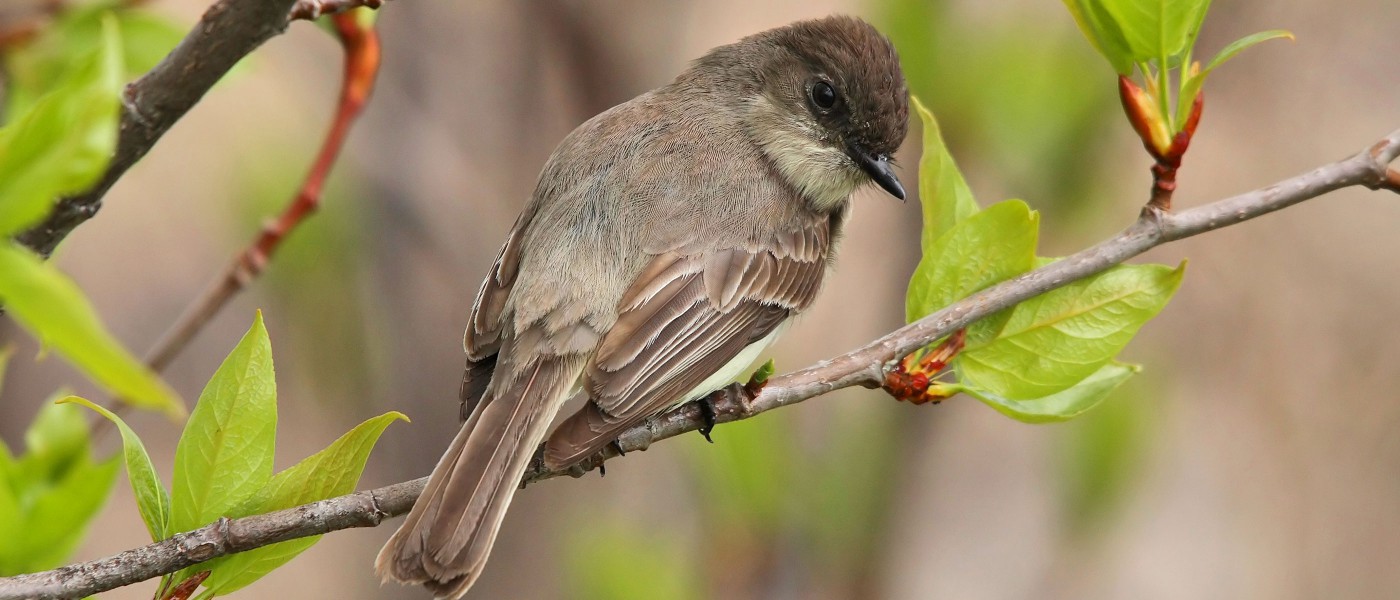Birds of Brooklyn: Eastern Phoebe
The American robin used to be considered the first sign of spring in the New York area, but climate change now allows robins to overwinter here. As a result, seeing a robin in January, February, or March no longer has the significance that it once had. Enter the eastern phoebe!
The eastern phoebe is a small flycatcher that feeds primarily on insects, and insects in the Northeast become active as soon as warmth and sunlight end their winter hibernation. The phoebe is one of the first birds to migrate north to take advantage of this situation. They usually arrive in the New York City area in mid-March after mild winters, but after cold, snowy winters they show up a bit later. Expect to start seeing more eastern phoebes around this week and next, as spring arrives. It is a plump, grayish-brown bird with an off-white breast that perches upright on fence posts and in small trees and shrubs. You might see one fly out, capture its food on the wing, and then return to its perch.
You can tell the eastern phoebe from other flycatchers by its habit of pumping its tail a few times just after landing on its perch. The phoebe also calls its own name with a song that sounds something like “FEE-be.” It breeds on eastern Long Island and in areas north and west of the city, and it is a very common migrant at Brooklyn Botanic Garden, as well as Prospect Park and Greenwood Cemetary. When you see or hear an eastern phoebe, you’ll know that winter has passed and we are ready for the new life that spring brings.
The Birds of Brooklyn series looks at some of the most familiar and fascinating birds that call Kings County their habitat.


